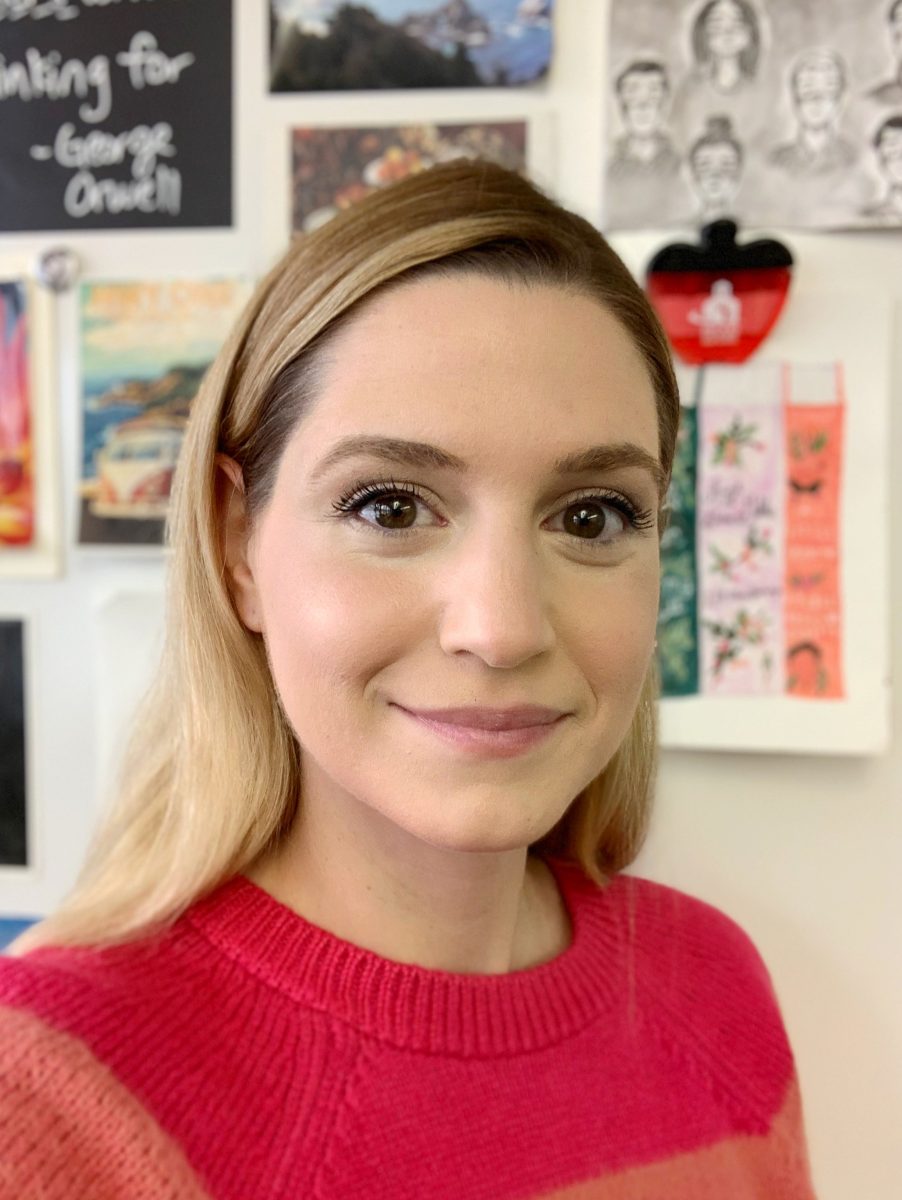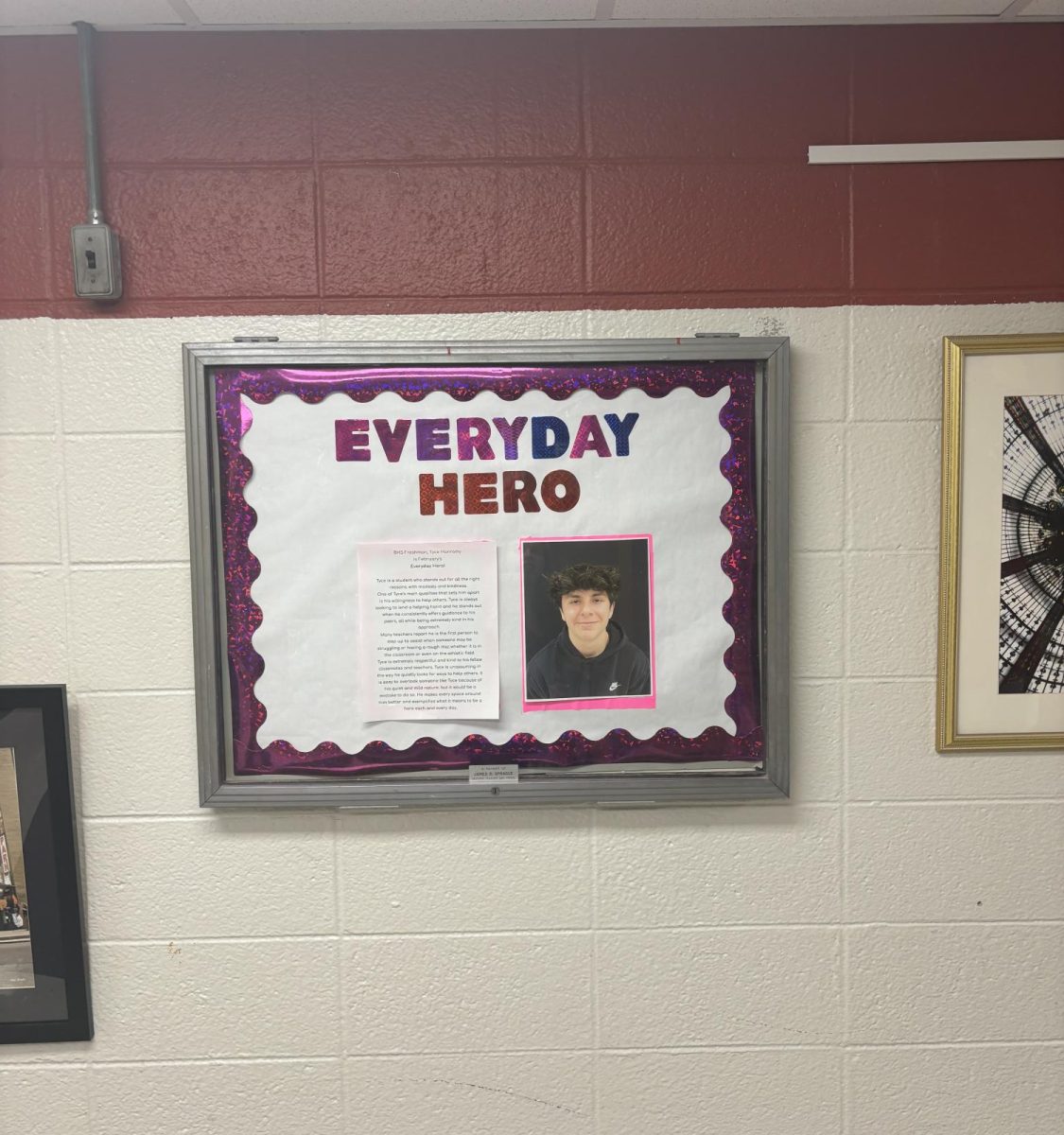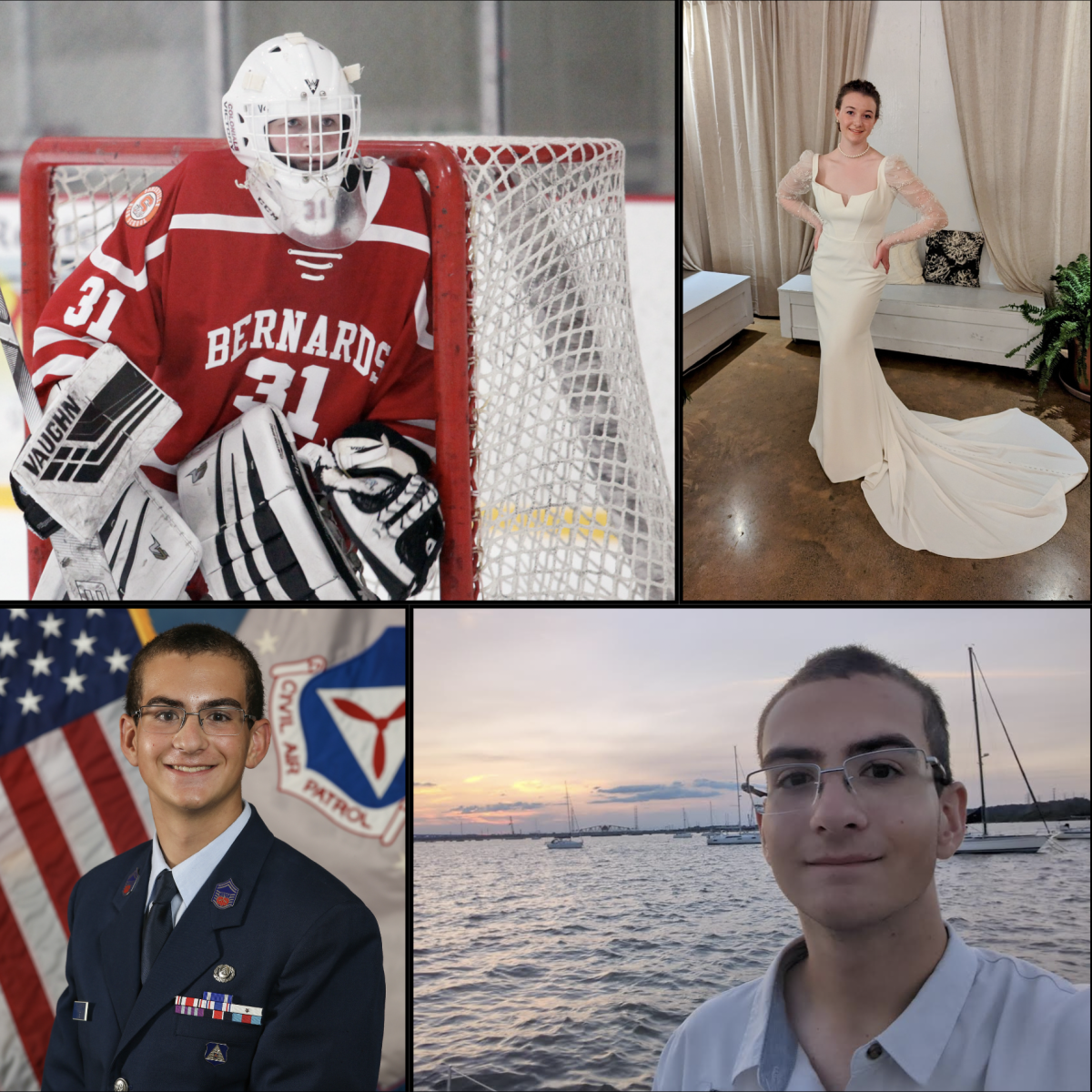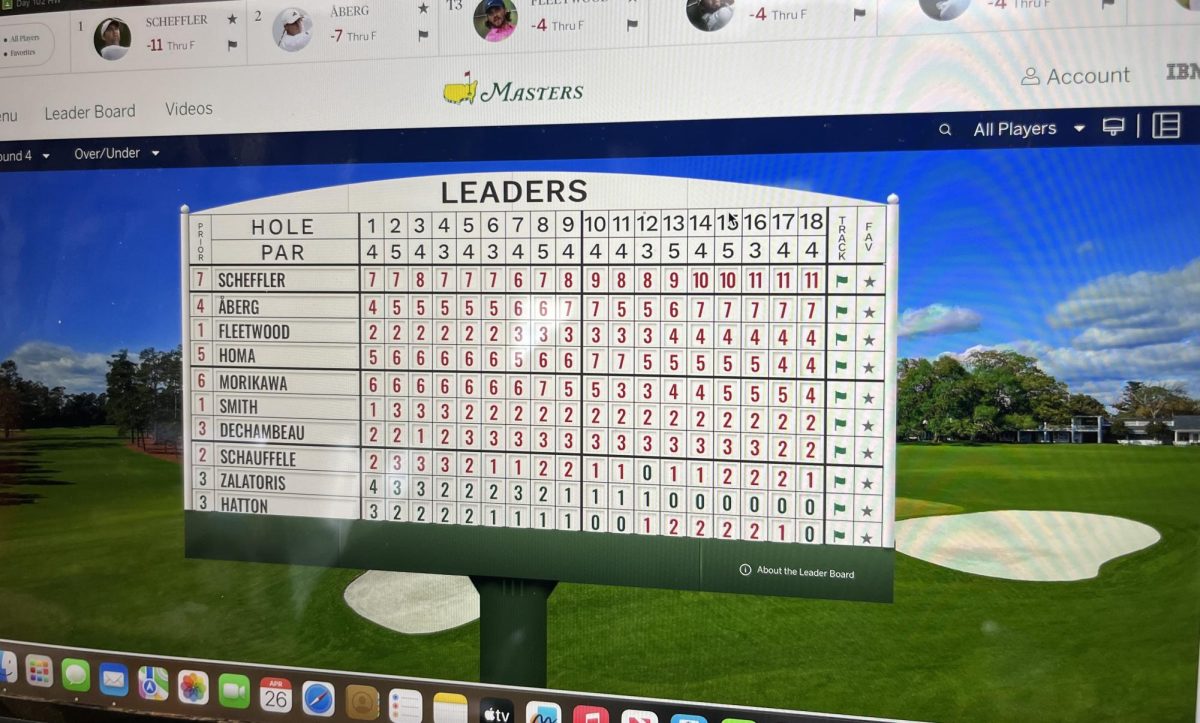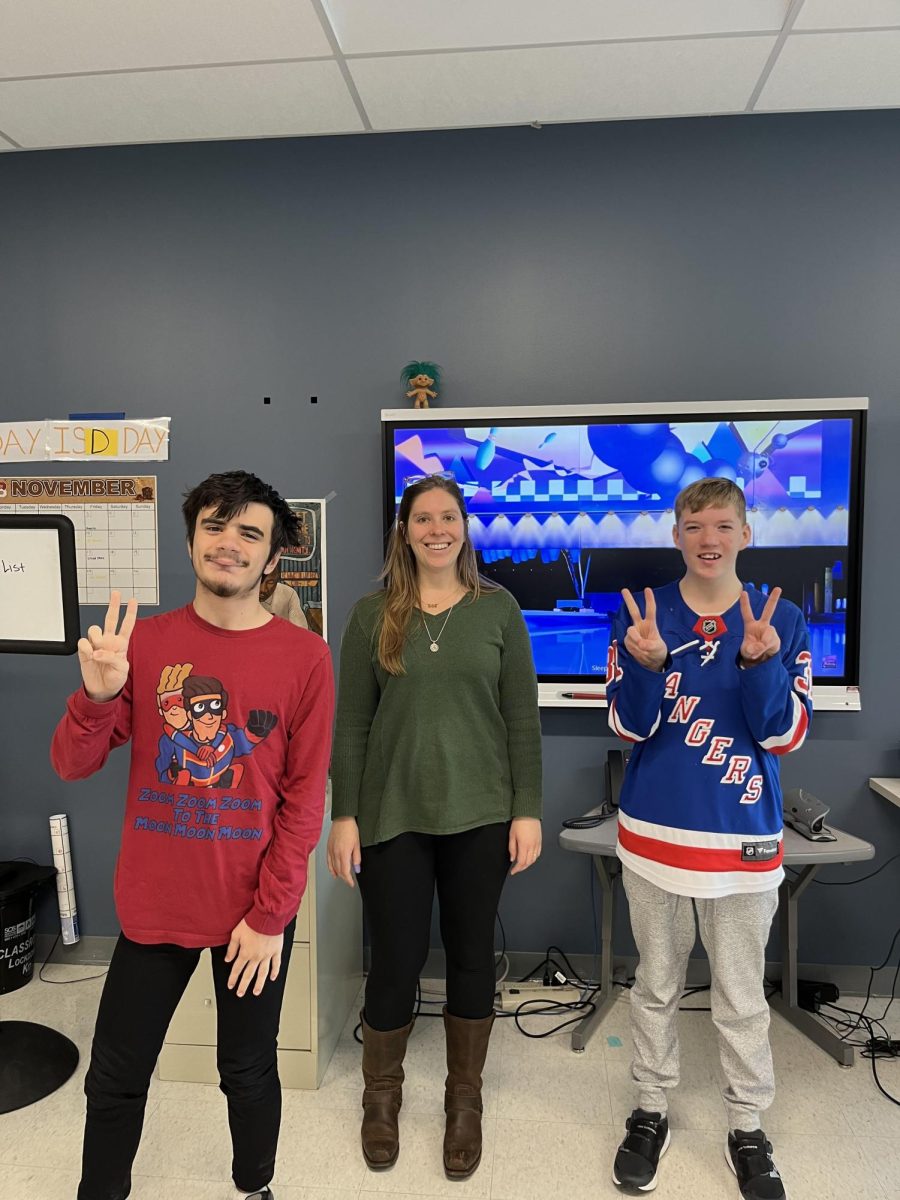What makes a teacher so great? Well, one doesn’t need to look farther than room B-304 for inspiration, where one would immediately see that Ms. Volosin’s dedication, passion, and unwavering commitment to invigorating young minds is a natural model. An AP Language and Composition, English A, and English H teacher at Bernards, Ms. Volosin is the best in what she does. She has taught at Bernards for three years but has 11 years of work experience from Meutchen, too.
Her favorite part about teaching is the interaction with the students. She fondly describes the classroom as a unique environment where “students make the lessons come alive. They have such interesting insights and perspectives and they help me better understand the texts that we read. I love that students are willing to share their worldviews and experiences with me and that we can be curious about topics together.”
Perhaps what makes her impact so profound is her fresh, advanced style of teaching; “I want students to understand that what we are doing in this class isn’t really about this class. It’s about what they will have to face outside of this class,” she explains,” I want them to develop a sense of trust in themselves… to be undaunted when faced with a challenge… to understand the power of language. And those things are not easily quantifiable. And so when students focus only on the grades it makes me feel like they are missing the whole point.”
A testament to her dedication and constant consideration in how to best support her students, Ms. Volosin continues to professionally improve by becoming an AP grader this year. She describes her role “as a teacher is to be the best resource for my students that I can be. My job is to be as knowledgeable and prepared as possible.” She attributes this responsibility as the reason she applied to be an AP reader this year. “Everyone talks about how it is the best professional development you can get and that you really walk away having a deep understanding of what they are looking for on the exam,” she says, “so it just felt like another way to make sure that I can serve my students as best as I can.” Ms. Volosin notes that she doesn’t mind the idea of “teaching to the test” since the exam is worthwhile and challenging, “The AP Lang exam makes students prove that they can read and understand high-level texts. And the essays, I feel, challenge students to think in new ways.”
Despite her seemingly effortless grasp of literature and language, one must not overlook the hard work and challenges behind the neatly organized lesson plans, eloquent teachings, and thorough analyses. Ms. Volosin notes that “I, like all of the teachers here, work really hard to prepare for all of my classes. I work over the summer to prepare new texts or units. I read and researched topics we are studying. I work on weekends and meet with students outside of class. So there is a lot that goes on behind the scenes. For this reason, it is really rewarding to see students engage in the material and class discussions. I love when a question I asked develops into a real debate among table mates, everyone articulating their points and relating ideas to the text and Ms. Volosin imparts the important lesson about the competitiveness of our area, creating an undue amount of pressure on students to perform or be perfect at an incredibly young age, “but I think that prioritizes the wrong things. The truth is the worth of a student or the potential of a student can never really be measured by a transcript. And your world will not implode if you get a bad grade. Your future is not destroyed if you do not get into your top-choice college. If you learn the “real” lessons from school: hard work, problem-solving, cooperation, independence, reflection then you will be successful wherever you end up after high school.” She feels that students should focus on developing these skills, where “The course materials are just the vehicles through which we teach those skills.”
One thing I really hope students understand when they walk out of my classroom is that reading and writing skills are not innate. No one, not even English teachers, are born with some supernatural ability to easily break down every text they come across. We have spent years practicing those skills and adding to our “toolboxes” so that when we are faced with a difficult text or writing prompt we have techniques and strategies that we can pull from to help break it down… Anything that I am capable of doing they are capable of doing. I just have a head start because I have been doing this for a long time. So my job is to help them develop their own “toolboxes” by modeling what I do and exposing them to different ways to approach problems so once they are out on their own they know they can face any challenge.
Work hard and think big are Ms. Volosin’s big mottos. Shedding light on Ms. Volosin’s personal values, one of her favorite quotes is: “If people cannot write well, they cannot think well, and if they cannot think well, others will do their thinking for them.” – George Orwell. “I feel that one of the greatest powers we have is the ability to think for ourselves, not to just be dependent on the world being explained to us by others. Others can have their own motives or be biased or uninformed. If we are not willing to do the hard work of evaluating and reflecting on something on our own then we leave ourselves open to always being dependent on others. We will always be experiencing the world through an intermediary or proxy. I want all of my students to be confident knowing that they have the skills necessary to make sense of the world or a problem for themselves. And this is the greatest threat I think AI technology poses – it makes it so easy for students to avoid the hard work of thinking for themselves. Thinking is hard. It should be. That’s what makes it valuable. A lot of people, not just kids, do not like being uncomfortable. And so if an opportunity presents itself to take that feeling away they go for it. But I believe this is shortsighted and denies them the very meaningful experience of sitting with an issue on their own and realizing that they can work it out – that they are more capable than they think. But they will never realize this or gain this sense of pride in their own abilities if they resort to just typing their questions into a box and taking whatever the internet spits back at them. And ultimately, most questions that we face in our lives cannot be answered by a computer. So I would rather students figure out how to problem-solve on their own so they are more prepared to face those questions when they arise.
Through engaging discussions and assignments, she inspires students to explore their values, human nature, rhetoric, and opinions in classic and contemporary texts (secondary sources). Ms. Volosin serves as a model and mentor, shaping Bernards students into future writers, thinkers, and leaders.


